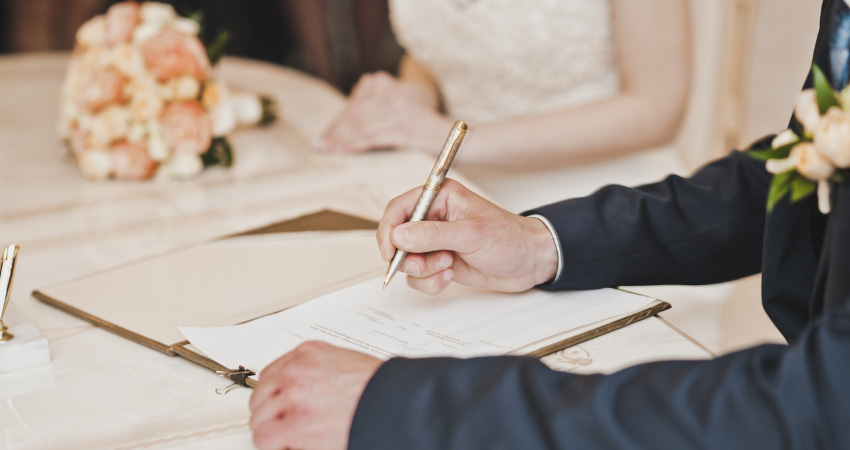There is an increased desire for young Muslims to have a civil marriage in the UAE, departing from the traditional Islamic marriage contracts governed by Sharia law. To address this desire, the Abu Dhabi Law No. 14 of 2021 has introduced progressive reforms to accommodate diverse personal status laws, including provisions for expatriate Muslims. This law specifically excludes UAE nationals, who are not permitted to marry under the civil marriage law.
Why Was Abu Dhabi Civil Marriage Law Introduced?
The main objective of the law was to provide foreign expatriates with a modern and flexible family law based on principles that are in line with the best international practices. Recent legal reforms have granted more freedom for couples, including legal recognition of partnerships that are non-religious.
Who Can Register a Civil Marriage in Abu Dhabi?
Muslim couples who are citizens of countries where civil marriages are recognized may be able to register a civil marriage in the UAE, especially if one partner holds a nationality allowing civil unions.
Although civil marriages are not the standard process for Muslims, those Muslims who meet the eligibility criteria may be able to follow the civil marriage process in Abu Dhabi. They will be required to submit:
- Passports and Emirates IDs;
- Proof of residence in the UAE (e.g., tenancy contract, utility bill);
- A Certificate of no impediment to marriage (from the consulate of the home country)
- Proof of divorce or death certificate of spouse, if previously married.
The later 3 documents will have to be legalised and attested if issued outside the UAE.
How to Apply for Civil Marriage in Abu Dhabi
You can either apply online through the Abu Dhabi Judicial Department (ADJD) website or in person at the Abu Dhabi Civil Family Court, Al Rawda, Abu Dhabi. Services are provided in both Arabic and English, making the process accessible to non-Arabic speakers.
The costs of a civil marriage application typically range from AED 300 to AED 2,500, depending on whether the service is standard or urgent. Once the application is processed, the couple will sign a civil marriage contract at the designated court. It is to be noted that if using this procedure, there is no requirement for religious ceremonies or adherence to Sharia law, marking a significant shift in Muslim marriage laws in the UAE.
Combining Nikah and Civil Marriage in the UAE
Muslim expatriates should also be aware that it is also possible to carry out the Nikah ceremony with a civil marriage in Abu Dhabi. The following few steps are vital to ensure that the marriage is legal and to secure approval for religious purposes:
- You should have the Nikah Ceremony, which is an Islamic marriage. This can be done at the mosque or before an authorized cleric.
- Obtain a marriage certificate from this process.
- Attest the marriage certificate at the Ministry of Foreign Affairs (MOFA) in the UAE. A marriage certificate without such attestation will not be considered legal.
- Submit the relevant documents, including your passport, identity card, and the divorce/death certificate, if applicable, and book a civil marriage appointment online at the Abu Dhabi Judicial Department (ADJD) website. You will require your Emirates ID to log in to the UAE Smart Pass.
- Once you receive an appointment for the civil marriage, you will need to attend to complete the civil marriage procedure, which entails signing the marriage contract in the presence of an authorized representative.
- Receive the civil marriage certificate that lawfully declares your marriage in Abu Dhabi.
- Attest the Civil Marriage Certificate at the Ministry of Foreign Affairs so that it can be recognised in your home country.
For further advice in relation to marriage or any other family matter, please contact our family law lawyers at [email protected] or Dee Popat at [email protected]

Head of Family Law / Senior Consultant

